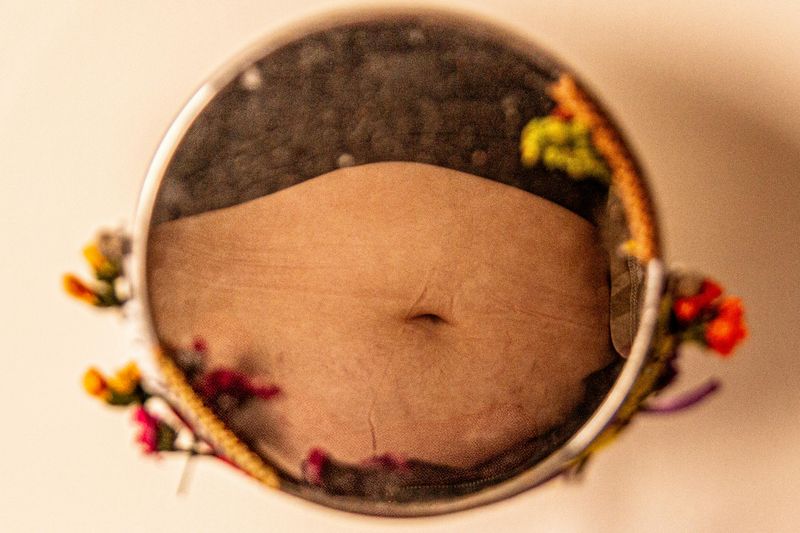14 Remarks That Can Undermine Someone’s Self-Love Journey

Words have power – especially when it comes to someone’s journey toward self-acceptance. When people work hard to build healthier relationships with themselves, certain comments can knock them off course. Think of self-love as a delicate plant that needs the right environment to grow. The following remarks might seem innocent, but they can actually damage someone’s progress and confidence in significant ways.
1. “You’ve changed” – Said as if it’s a bad thing

Growth is supposed to change us – that’s the whole point! When someone uses this phrase with disappointment in their voice, they’re essentially punishing a person for evolving.
Personal development often means outgrowing old patterns, setting boundaries, or prioritizing differently. The person saying this might actually be uncomfortable with losing control or influence over someone who’s becoming more self-assured.
Remember that change can be beautiful evidence of healing. Anyone genuinely supportive of your journey will celebrate your growth rather than use it as an accusation. Their discomfort with your transformation says more about their issues than about your path.
2. “You’re so full of yourself now” – Confusing self-confidence with arrogance

There’s a world of difference between healthy self-esteem and being conceited, but some people can’t tell them apart. This cutting remark attempts to shame someone for finally recognizing their own worth.
Often, the person making this comment has their own insecurities triggered by seeing someone else’s confidence bloom. They might unconsciously want to bring that person back down to their level of self-doubt.
Loving yourself doesn’t mean thinking you’re better than others – it simply means you’ve stopped believing you’re worse. Standing tall in your self-worth isn’t arrogance; it’s emotional health. Don’t let anyone convince you otherwise.
3. “Don’t get too comfortable” – Suggesting their worth is conditional

This seemingly casual warning carries a threatening undertone: your security and acceptance can be revoked at any moment. It plants seeds of anxiety and undermines the stability someone might be building in their self-image.
The message implies that comfort in one’s own skin is somehow dangerous or undeserved. For someone working hard to finally feel at peace with themselves, this suggestion that they should remain vigilant and insecure can be deeply harmful.
True self-love isn’t about getting comfortable with external validation – it’s about finding an unshakable inner foundation. Anyone who suggests you shouldn’t fully settle into your own worth may be projecting their own conditional view of love.
4. “You’re lucky you can feel that way” – Dismissing their work toward self-acceptance

Behind the scenes of self-acceptance usually lies years of inner work, therapy, boundary-setting, and conscious effort. Labeling it as “luck” erases all that labor and minimizes the courage it takes to love oneself in a world that often discourages it.
This comment frames self-love as a random privilege rather than an achievement. The journey to self-acceptance is rarely easy or straightforward – it’s a deliberate choice made daily, often after overcoming significant obstacles.
Next time someone implies your positive self-relationship is just good fortune, gently remind them that luck had little to do with it. Your self-love is something you’ve built brick by brick, and that deserves recognition, not dismissal.
5. “Not everyone’s going to like you” – Implied as a warning, not a fact

While objectively true, the context and tone make all the difference with this statement. When delivered as a cautionary warning rather than a liberating truth, it suggests someone should dim their light to please others.
Used supportively, this reality check can actually empower someone to stop chasing universal approval. But when wielded as a criticism against someone’s authentic self-expression, it becomes a tool to encourage people-pleasing and self-doubt.
Universal likability is impossible and exhausting to pursue. The healthier goal is being comfortable with the fact that some people won’t connect with the real you – and that’s perfectly okay. Your self-love journey isn’t about winning a popularity contest.
6. “That’s not very humble of you” – Policing their self-expression

Somewhere along the way, many of us learned that acknowledging our strengths out loud is somehow wrong. This weaponized “humility” becomes a social control mechanism that keeps people – especially women and marginalized groups – from owning their power.
True humility isn’t about denying your gifts or achievements. It’s about having an accurate assessment of yourself – strengths included – while recognizing you’re still learning and growing.
Celebrating your wins doesn’t make you arrogant. There’s nothing virtuous about shrinking yourself to make others comfortable. The next time someone tries to shame your healthy self-acknowledgment, consider whether their definition of humility might actually be rooted in keeping people small.
7. “You’ve really put on weight/lost weight” – Reducing them to appearance

Body changes happen for countless reasons – stress, medication, health conditions, life transitions – yet these comments reduce someone’s entire being to their physical form. For someone working to build a healthier relationship with their body, such remarks can trigger shame spirals and old insecurities.
Even comments framed as compliments (“you look great since you’ve lost weight!”) reinforce the harmful idea that a person’s value fluctuates with their size. They suggest constant appearance monitoring is normal and appropriate.
Bodies naturally change throughout life. Learning to love yourself means accepting this reality rather than fighting it. True friends will see and appreciate you beyond your physical shell, focusing on who you are rather than what you look like.
8. “Who do you think you are?” – Questioning their right to take up space

Five little words that pack a massive punch. This phrase directly challenges someone’s right to exist authentically, pursue their dreams, or express their thoughts. It attempts to put them “back in their place” when they’ve dared to step outside expected boundaries.
The question itself reveals more about the asker than the target. It exposes their belief that people should stay within predetermined boxes based on factors like background, gender, or social position.
Your answer to this question matters: You are exactly who you think you are. You’re someone deserving of respect, with valid dreams and the right to express yourself fully. Never let anyone’s limited imagination determine your sense of possibility or belonging in this world.
9. “You’re just trying to get attention” – Framing self-celebration as vanity

Human beings are social creatures who naturally share their joys and achievements. Yet this dismissive comment frames healthy celebration as manipulative attention-seeking behavior.
The accusation carries particular sting for those raised to believe that wanting recognition is somehow shameful. It’s often aimed at people (especially women) who are finally allowing themselves to be seen after years of hiding their light.
Seeking appropriate acknowledgment is normal and healthy. Sharing your happiness doesn’t make you vain or needy – it makes you human. Those who try to shame you for it may actually be uncomfortable with their own visibility or jealous of your growing confidence to share your authentic self with the world.
10. “I liked you better before” – Holding them to an old version of themselves

Growth often means shedding people-pleasing behaviors and establishing healthier boundaries. When someone expresses preference for your former self, they’re typically mourning the version of you that was easier for them to control or take advantage of.
This nostalgic manipulation attempts to make you feel guilty for your evolution. It suggests your worth to them was conditional on staying small, accommodating, or less aware of your own needs.
The painful truth? Some relationships naturally end when one person outgrows old patterns. Anyone who truly loves you will want your highest good, even when your growth causes discomfort. Those who prefer your “before” self are telling you something important about whether they belong in your “after.”
11. “It must be nice to love yourself” – Undermining it as a privilege, not effort

The sarcasm in this statement attempts to frame self-love as an indulgence rather than essential emotional health. It subtly suggests the person has taken an easy path while others struggle with “real problems.”
What this dismissive comment fails to acknowledge is the tremendous courage and work required to overcome self-hatred in a world full of messaging that profits from our insecurities. Self-acceptance is rarely a natural state – it’s a practice built through conscious effort, often after years of painful self-criticism.
Yes, it is nice to love yourself – that’s the whole point! But nice doesn’t mean easy or unearned. Your journey toward self-compassion deserves respect, not belittlement disguised as envy.
12. “Don’t get ahead of yourself” – Shrinking their goals or joy

This caution masquerades as practical advice while actually serving as a joy-dampener. When someone expresses excitement about possibilities, this phrase attempts to temper their enthusiasm under the guise of protecting them from disappointment.
While well-intentioned in some cases, it often reflects the speaker’s own fear, limited thinking, or discomfort with ambition. It can be especially harmful to those who’ve finally found the courage to dream bigger after years of playing small.
Enthusiasm and hope are precious resources, not naive liabilities to be managed. The ability to envision positive futures is a strength, not a weakness to be corrected. Your excitement deserves celebration, not cautionary warnings that only serve to shrink your sense of what’s possible.
13. “Some people don’t have that luxury” – Guilt-tripping them for feeling good

This comparison tactic attempts to make someone feel guilty for their happiness or self-care by pointing to others’ suffering. While awareness of privilege is important, this particular framing suggests someone should feel bad about their well-being rather than grateful for it.
The comment creates a false dichotomy – as if one person’s self-love somehow takes away from others or as if feeling bad about yourself helps anyone else feel better. In reality, proper self-care actually increases our capacity to help others.
Your happiness is not a limited resource that must be rationed based on global suffering. Taking care of yourself doesn’t mean you don’t care about others’ struggles. In fact, your own well-being enables you to show up more fully for causes and people you care about.
14. “You think you’re perfect now?” – Twisting self-love into self-delusion

This sarcastic question reveals a fundamental misunderstanding about what self-love actually means. Accepting yourself doesn’t mean believing you’re flawless – it means embracing your humanity, imperfections included.
The question creates a straw man argument, suggesting that self-acceptance equals an inflated, unrealistic self-image. In reality, true self-love often comes with greater self-awareness, including honest recognition of areas for growth.
The healthiest people don’t claim perfection; they simply stop punishing themselves for being human. They can acknowledge their mistakes without crushing their worth. Next time someone implies your self-acceptance means you think you’re perfect, clarify that you’ve simply stopped believing you need to be perfect to be worthy of love and respect.

Comments
Loading…